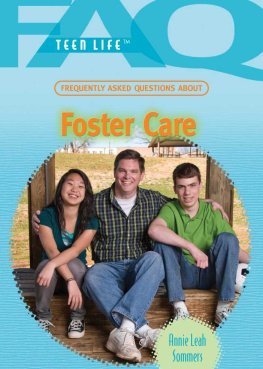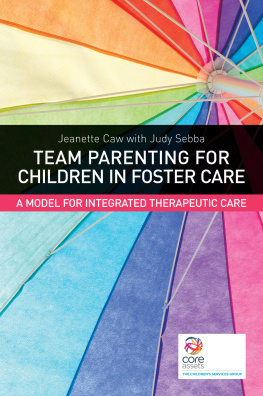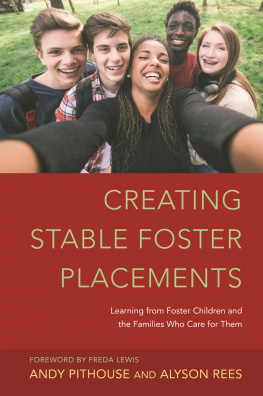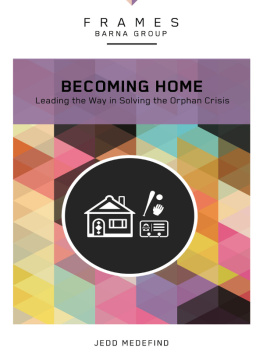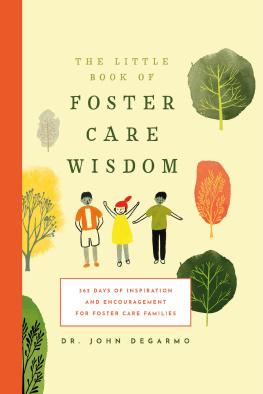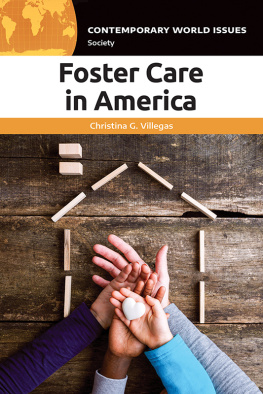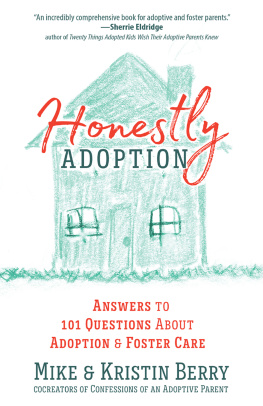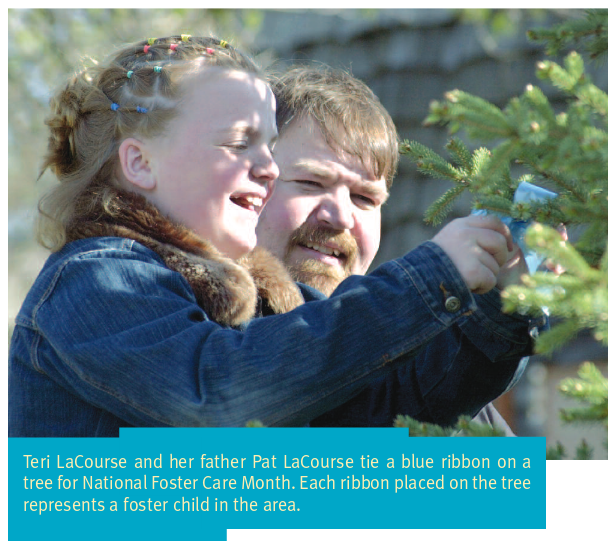Published in 2010 by The Rosen Publishing Group, Inc.
29 East 21st Street, New York, NY 10010
Copyright 2010 by The Rosen Publishing Group, Inc.
First Edition
All rights reserved. No part of this book may be reproduced in any form without permission in writing from the publisher, except by a reviewer.
Library of Congress Cataloging-in-Publication Data
Sommers, Annie Leah, 1968-
Frequently asked questions about foster care / Annie Leah Sommers.
p. cm.(FAQ: teen life)
Includes bibliographical references and index.
ISBN 978-1-4358-3546-7 (library binding)
1. Foster home care. 2. Foster children. 3. Questions and answers. I. Title.
HV873.S67 2010 362.73'3dc22
2009014418
Manufactured in the United States of America
CONTENTS
Chapter One
WHAT IS FOSTER CARE?
In the United States, there are approximately six hundred thousand young people who are living in the foster care system. At times, it can be a complex system that may seem overwhelming. However, knowing how foster care works, what to expect, and how other teens in foster care cope can be extremely helpful.
In the United States, the Department of Social Services (DSS) is the government agency in charge of the foster care system. The goal of foster care is to provide children in need of a better home life with a safe and welcoming environment among responsible and caring adults. Foster care children can range in age from newborn to twenty-one years old. What they all have in common is that they live in a home other than that of their birth parents'.
There are many reasons children might not be able to live at home. In some cases, birth parents are not able to care for their children. They may be struggling financially or may be extremely ill. Other children may suffer from the instability caused by parents with a substance abuse problem. In other cases, youth are removed from their parents' care when their home environment becomes violent or dangerous.
Children whose parents are physically or mentally abusive are often candidates for foster care. Tragically, there are also cases in which parents suffer from illness or sometimes death and children are left alone, often without any close relatives that can take care of them. No matter what the reason, all teens in foster care will likely experience some of the same challenges and share some of the same feelings.
How Foster Care Works
Foster care can be overwhelming, especially because as a foster youth, you may feel very alone. After all, for whatever reason, you're not able to rely upon or turn to your birth parents. And suddenly you're leaving behind things that are familiar to you to go somewhere completely unknown where you'll be among strangers. Although it can be a big relief to get away from a painful or even dangerous home situation, the transition to a new home can be scary.
Although you may feel alone, try to remember that you're not. A lot of other teens are in the same boat as you. There are also many adults who have spent a lifetime working and living with foster children who are ready to help you navigate the child welfare system. A really useful way to find out more about being in foster care is by asking questions and learning from others, especially from other teens who are or have been in foster care. Just as important as talking with other children is speaking with adults who can help you understand the basics of the foster care system. Armed with this knowledge, you will be equipped to help yourself get the best care possible. As a result of being informed, you'll feel less scared, stressed, and confused and will have realistic expectations about foster care. More important, you'll be more in charge of your own life and your future.
Where Will I Live?
If you are not able to live with your birth parents, how do you end up with a foster family? Placing you with a foster family is the responsibility of the government. Depending upon the state in which you live, the government agency in charge may be called Child Protective Services, the Department of Social Services, or the Department of Children and Family Care Services. Sometimes, government agencies work with private agencies. In some states, the private agency may be referred to as a contract agency, a provider agency, or simply "the agency. No matter what it's called, the goal will always be the same: to find you a home.
Being placed in a foster home means you'll be taken care of by people who have received training on how to be foster parents. Such training ensures that these caregivers can provide you with a safe and nurturing home environment. It also helps make foster parents aware of the issues and emotional situations foster teens may be facing.
In general, living with a foster family involves moving into a family's house or apartment where, along with your foster parents, you'll likely be living with the foster parents' own birth children and, in some cases, other foster youth as well. However, when possible, children may be placed with another family member, such as an older sibling (over the age of twenty-one), a grandparent, a cousin, or an aunt or uncle. This type of living situation is often referred to as kinship care. If neither living with a foster family nor other relatives is possible, there are other options.

Sometimes, foster teens are placed in residential treatment centers (RTC). These are group homes where young people live in a structured, campus-like environment while going to school. RTCs have staff that are specially trained to care for foster teens with specific needs. Examples include group homes for pregnant teens where young women learn how to become good mothers while getting the prenatal care they require. It could also be a home where youth with learning disabilities live and receive special care and education. What's good about these living situations is that you'll be with other teenagers who share the same problems and experiences as you. Living together can be a great learning experience.
Some foster youth may initially find themselves in an emergency shelter. If your family household becomes so dangerous that your health or even your life is in danger, immediate action is necessary. A teenager may be taken from his or her home and placed in an emergency shelter for a short period of time until a more permanent care solution can be found. Teens might also be temporarily placed in such a shelter if they are experiencing serious problems with their foster family.
The average length of stay in foster care is a little more than two years. The hope is that during this time, birth parents will get help or counseling that will ultimately improve family life and make it safe for you to return home. The reality is that sometimes it can take longer for this to happen. In such instances, it is quite likely that you will end up moving at least once. The average teenager in foster care lives in two to five different homes over a period of two and a half years. Some teens end up moving three or four times in a year.
Constant upheavals and change can seem overwhelming. After all, you've probably already got your hands full just dealing with high school and all the normal concerns that come with simply being a teenager. Remember that these are normal feelings.

